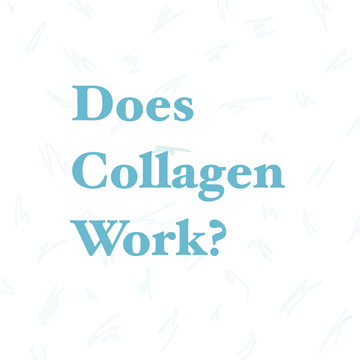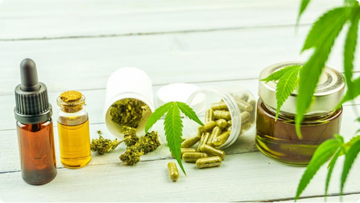Knowledge bomb: What is collagen? Does it work?
Product review: Transparent vs. non-transparent collagen companies.
Guest Segment: Dr. Jade Teta
Dr. Jade Teta is an author, entrepreneur, doctor of natural medicine and a strength and conditioning specialist with over 20 years of experience. He writes, lectures and teaches in the areas of hormonal metabolism and personal development and has sold a combined 1 million copies of his works worldwide.
In this interview: Dr. Jade blows us away with his ability to turn complex concepts on metabolism to easy take home messages. He teaches us the tell tale signs for a disrupted metabolism and how it can make us sick. Additionally, he introduces us to one of his most important teachings, how to find our life purpose. An amazing interview!
Heal Thy Self is a show based on empowerment. Empowerment of you, the viewer such that you can be your highest self on every level. Through knowledge, we will be giving you the information you need to make informed decisions. We lead you to water, you deep dive in.
[00:00:04.260]
All right, everyone, today's episode of Heal Thyself. Thank you for joining this is the newest one. This is going to be a really good when I say it all the time, obviously. Thank you for supporting the show, doing everything you can. So this is the show you've been waiting for for quite a while.
[00:00:17.070]
I will be reviewing college in all the different types of college in ranked from most transparent to the best ones to maybe I'd stay away from them. So I really hope you guys find a lot of value on this show. And then I have an awesome, awesome, awesome guest, a close friend of mine, Dr. Jade, and he is totally a metabolism guru. Anything you ever wanted to know about just overall health and weight loss, weight gain, whatever you're looking for, you got to listen to him.
[00:00:44.070]
All right. So without further ado, I'm going to go right into it.
[00:00:46.890]
Let's get to the bottom. All right.
[00:00:54.150]
So before we get into the best and worst brands for collagen, I really want you all to understand what collagen is and why people are using it.
[00:01:02.130]
It's a major structural protein in the body and it's found all throughout all different types of areas.
[00:01:07.080]
And I'll tell you where mostly. But it's the most abundant protein overall with 25 to 30 percent of the body being collagen. You see it most in skin, which is why the beauty industry has gone really hard on the collagen cartilage, ligaments, tendons, bones, and it gives us structure. So we're not like just a puddle of skin with two eyes on the floor, but it gives our body strength and structure, but also stability and flexibility. So in terms of skin, let's think about a little baby.
[00:01:34.440]
When you pinch a baby's cheek and it has that reflex back, right. It's nice and plump and soft. That's collagen, whereas you do it to your grandmother, it's going to be a little different. That's the difference between collagen deposition and different areas of the body, particularly now we're talking about the skin.
[00:01:49.110]
So it's also has a very important function I just mentioned about stretching.
[00:01:54.480]
So you see it and ligaments and tendons. Right. They're going to need to stretch and move, but also be stable.
[00:02:00.180]
Unfortunately, as we get older, there's different reasons why college in the closet declines. But as we get older, collagen declines, actually UV radiation. So lots and lots of sun can change the formation of collagen or the deposition of collagen, which is why you see people who are out in the sun all the time, their skin changing. That's because their collagen is breaking down. We make our own most of it is coming from ourselves. It's coming from our cells.
[00:02:22.500]
And that's called endogenous collagen. Whereas when and I'll speak about later exogenous collagen that's coming from like suppliments.
[00:02:29.250]
So it's different types of collagen. And you'll see your supplement may advertise that it's a certain type of collagen. Now, the types vary, but the major ones are types one, two and three types. One is mostly in the skin, the bones, the ligaments, the tendons.
[00:02:43.050]
Right, the teeth. These are densely packed ropes of collagen to provide really strong, strong stability. All right. Whereas type two is cartilage eyes that's less less structural and more loosely collagen. And then type three is mostly in the intestines and blood vessels. So you'll see that these collagen companies are going to advertise the type of college that it uses specific to what it needs to heal.
[00:03:08.430]
So when it comes to the exogenous collagen, the whole supplement industry, they utilize bovine poultry, porcine and marine parts. So depends on the company. Usually some will use a mix of all, some will use just one. But what are the goals of usage? Right. So you have to ask yourself, why are you using collagen and if it's going to work? And that's the big question, this collagen work. So the worry with collagen is that supplemental if it's not fully absorbed in the body.
[00:03:37.410]
And then the other part is, is that it's not necessarily intended the way we want it to be used.
[00:03:43.380]
So the analogy I say is sometimes if you take in collagen and they're giving you're giving yourself some particularly amino acids, which I'll talk about later, the body doesn't care about pumping your skin when it has more important things to do internally. Skin is the last thing to heal when your body is healing. So if you're using collagen for beauty, but your joints are arms, your intestines are inflamed, I think your body's going to prioritize those things before your skin and then you might go up.
[00:04:10.950]
This collagen supplement didn't even work. So that is sort of the controversy behind the collagen industry.
[00:04:16.530]
But there are some studies that say yes to that and no to that. The studies that do say yes, they show that over a few months there has been shown improvements for the intended function. So one is skin. There is a study that showed that folks had more elastic, hydrated and youthful appearing skin. There was a study on joint health and folks had better joint health improvement of joint health, reduce pain.
[00:04:40.740]
But there are also some studies on the other side that say that it doesn't work at all. So what you'll see is on these notes for the show, I provided some citations where you can read some yourself. The bottom line is, is this. If you notice a difference, then listen, your body, right? If you're using collagen and you notice a different listen to your body, don't listen to me if you don't notice a difference. Well, maybe there's other things that you need to do, which I'll talk about if you take college peptides, you need to support it in other ways.
[00:05:05.590]
You can't just depend on the supplement itself. So here are some of my favorite ways to support endogenous. Right. Internal collagen production, vitamin C, vitamin C is so, so.
[00:05:16.480]
So it's actually top tier important when it comes to collagen. Right. It might even be more important than the and peptides themselves. Right. Because not only does vitamin C stimulate the production of your own endogenous collagen, but it also protects your cells from oxidation. Really cool stuff. Remember, I talk about oxidation breaking down collagen. Vitamin C is a co factor to the enzyme that stabilizes the amino acids that make up collagen also. So its capital essential for healthy collagen in the body.
[00:05:43.570]
Now, if that was enough, vitamin C also promotes the genetic expression of more collagen, more synthesis of collagen.
[00:05:50.050]
So when vitamin C is not present, you have less cross-linking, less structure, less stability, decreased total synthesis of collagen. So if you take the couch and peptides or if you're not, make sure you're getting vitamin C, you've got to get your vitamin C status right. Get your berries, your raspberries, your blueberries, your blackberries, your orange or grapefruit, lime lemon peppers, bell peppers, all different colors. Papaya, mango, guava. Get your vitamin C if you want collagen in your body.
[00:06:17.440]
What else do you want? You want sell rich foods. Sulphur protects collagen from the breakdown in the body. Right? It also protects you from oxidation, just like vitamin C, it helps your liver detoxify. So some foods that are high in proteins are meat, fish, cabbage, soy, chives, asparagus, watercress, seaweed beans. Some are high and glycine are meat, fish, eggs, carob, watercress. Again, sesame, sunflower, pumpkin seed, spinach, carrots, beets in the gums.
[00:06:43.720]
So make sure you're getting these densely packed amino acid rich foods, some sulfur, some vitamin C.
[00:06:50.080]
So lastly, some folks say the bone broth can be rich in these nutrients, but you've got to be vigilant about your bone broth and be aware that when mammals are exposed to heavy metals, we build them up in our fat or we build them up in our brain and our nerves in our and different organs. But one of the major parties, our bones, too. So you have to be vigilant. I don't ever tell people to do bone broth all the time, particularly because there's the risk of heavy metals.
[00:07:19.570]
So if you're doing it, don't do it regularly.
[00:07:20.920]
But it can theoretically be a really rich source of these amino acids that I mentioned, plus collagen in itself.
[00:07:27.760]
So lastly, before I move on to the product review, there's here's a bonus that no one's talking about when it comes to college. And I'm going to give it to you. One of the most powerful collagen stimulators just might be red light therapy. One control trial in the photo medicine and laser journal showed that red light therapy created an increase in college and production, as well as a noticeable change in feeling in the complexion of the intervention group versus the placebo.
[00:07:52.660]
We also see benefits in collagen deposition when it comes to the bone and in muscle strength. So if you're looking to optimize collagen and you're really into like anti aging and cosmetics might be a really nice intervention to invest in a red light infrared unit that you use all the time, you can use it daily. I've had colleagues of mine use it and say that their skin has really pumped up in a month.
[00:08:16.180]
So I have one. I just haven't used that in that capacity.
[00:08:19.150]
Or for that, I'll give it a try and I'll report back. All right.
[00:08:21.910]
So there you go. Let's just go into the product review. I know you all want to know about the best colleges out there, and I want to I know you want to know who was not transparent. So let me help you out. Let's go to the product review.
[00:08:40.240]
OK, so for the product review, I'm here to talk about the exogenous collagen industry.
[00:08:43.960]
Right? The supplement industry. It's a multibillion dollar industry. So aside from supplements, collagen is used medically as a cosmetic filler.
[00:08:52.540]
We've seen that in an aesthetic medicine wound, healing and E.R. we use it for burns and nasty injuries and cuts, tissue regeneration. We see that in dentistry a lot of the time and oral as well as using utilizing it for the gum and graphs and in skin regeneration, that that's used a lot. So I do not I'm going to say this before I even jump into the supplements. I don't believe that collagen creams work. I don't think that they get into the skin deep enough.
[00:09:19.150]
So I think they're Hoke's now collagen peptides is what I'm here to talk about. This is hydrolyzed collagen. So it's supposed to be more absorb-able to three plus billion dollar market. It's expected to hit seven billion dollars in the next six to seven years. It's already saturated.
[00:09:33.490]
There was a ton of companies that I called up, so I wanted to get in touch with the top companies, wanted to see how they source if they were transparent. Right. If they were willing to provide information.
[00:09:45.280]
I also asked the companies about their products and specifically the CEO. And if you'll remember, when I did the Cachao review, when I did the plant protein powder review and now this one, I mentioned always the certificate of analysis, a third party. Usually.
To learn more, hear their full length Podcast or YouTube video in the links below!
Podcast by






